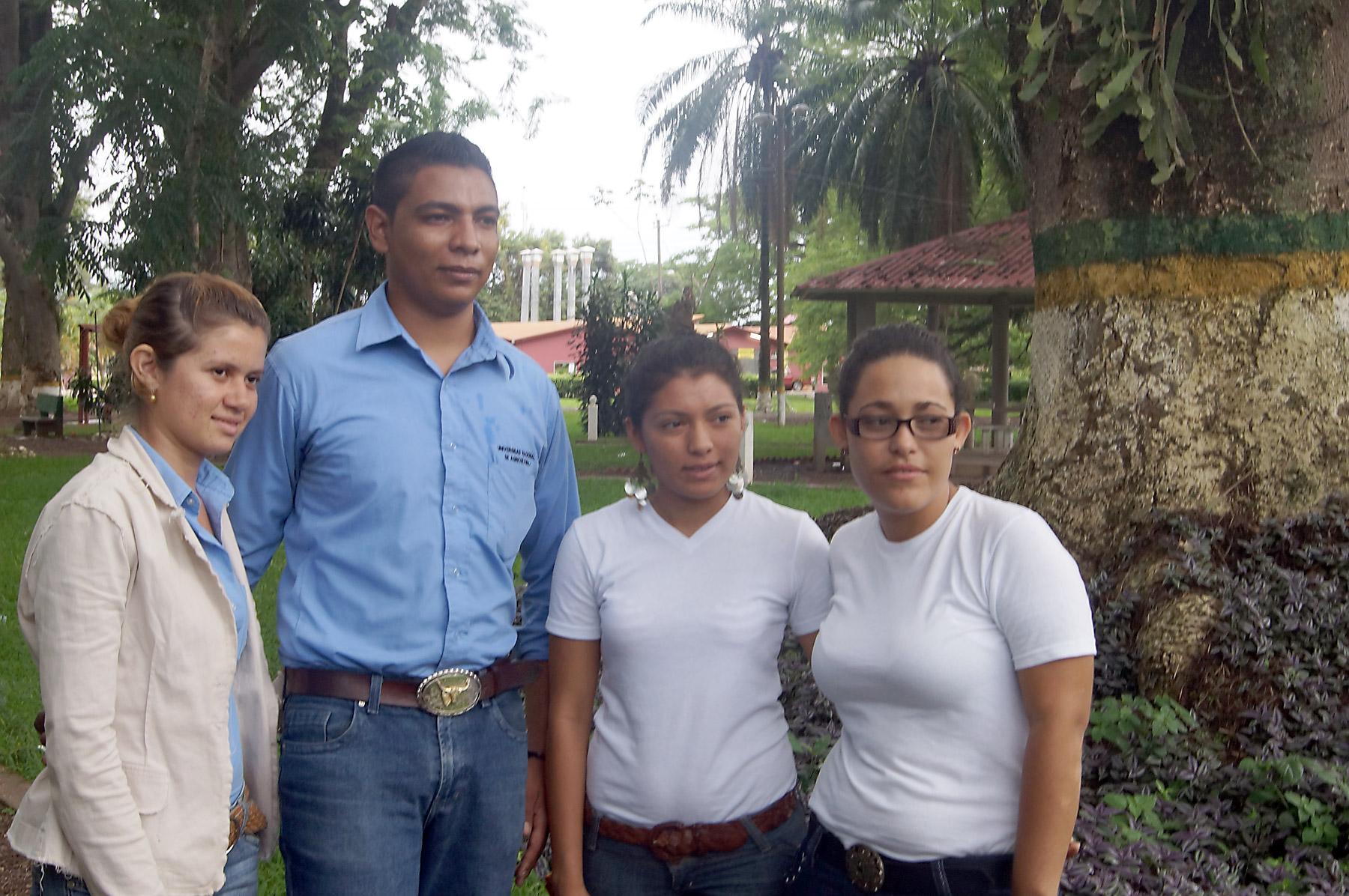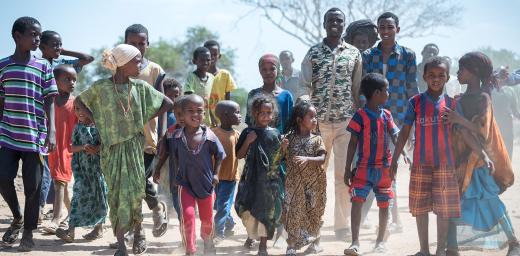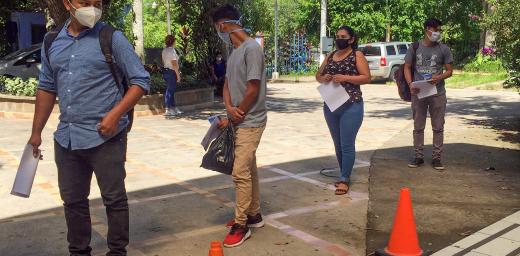Young People Caring for the Environment in Honduras, a Society in Conflict

A group of participants in the LWF-run PACOS course. Photo: LWF Central America/M. Salinas
LWF Supports Initiatives That Promote Food Security and Climate Justice
(LWI) - Initially 21-year-old Honduran Ana Clementina Reyes, did not want to participate in the Community Environmental Promoters course because she thought it would take up too much of her time. But her sister, Carmen Betsabe Macías, convinced her to join in and she is now among the second generation of graduates from Olancho.
The Lutheran World Federation (LWF) runs the PACOS (Diplomado de Promotores Anbientales Comunitarios) course, which focuses on promoting environmental issues, in collaboration with CARITAS Pastoral Service and the National University of Agriculture. The six-month course is offered twice yearly to young people in Olancho in northeastern Honduras, the country’s largest department, also considered to have one of the highest levels of violence. The aim is to involve and recruit young leaders to care for the environment within their communities.
“Before, there were things that did not interest us, but when we realized the nature of our situation and what was happening around us, it motivated us to change as well as to try to make a change in others. This should begin with the family, changing bad habits at home and then changing our surroundings,” Clementina explained.
Through its Department for World Service (DWS) regional program and partners in Central America, the LWF is involved in projects in Honduras aimed at helping to build a true green economy, which promotes food security, climate justice, renewable energy, health, human rights and gender and ethnic justice. Estimates indicate that 70 percent of the population is unable to earn an income necessary to meet their basic needs.
“Every time our friends clean their teeth or have a shower, we tell them to turn off the tap or the shower. Sometimes they tell us we’re crazy, as we are looking after things that others waste. But we know that we are doing something, and even if other people don’t want to do it, at least we are trying,” said both Clementina and Betsabe, 19, who is a first year student of Food Technology at the National University of Agriculture.
Changing Lives
In countries like Honduras, where criminal gangs are a real threat to young people, who were the victims in 8 out of every 10 violent deaths in 2012, initiatives such as PACOS are very important in helping to keep young people occupied and preventing them from getting involved in gangs or difficult situations. There are 600,000 young people aged between 10 and 24 in the Central American country, who do not work or study.
LWF Central America is active in three municipalities in Olancho; Juticalpa, Manto and Salamá. Clementina and Betsabe’s involvement in PACOS has helped to change their vision of how to contribute to improving their communities.
“In the municipality of Salamá, last year, we asked the town councils to support us. We were part of a forum to deal with polluted water sources. This project was a forgotten issue, now it is part of PACOS’ activities and is being included in the clean-up, and not just by us, but by other people as well,” they said.
The course has also enabled them to change their lives and created new opportunities for their family members.
“My brother is 15 years-old. When he saw me and how motivated I was, he decided to join the project too. When I least expected it, I saw him here attending the third generation classes,” said Clementina.





